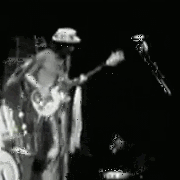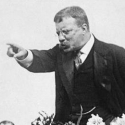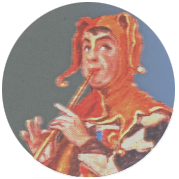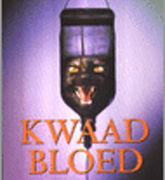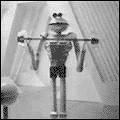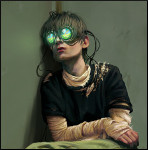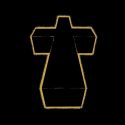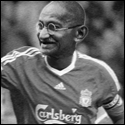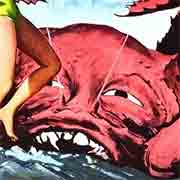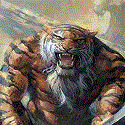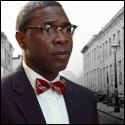|
I just finished The Emperor's Gift by Aaron Dembski-Bowden Absolutely smashing book for anyone interested in Warhammer 40k and sci-fi, although its probably not the best book for people unfamiliar with the warhammer universe.
|
|
|
|

|
| # ? May 31, 2024 13:34 |
|
Feste posted:The Magicians by Lev Grossman. If you read Harry Potter and/or any of The Chronicles of Narnia as a kid, you'll more than likely enjoy the novel. It has a snark about it that doesn't deprive it of heart and bases itself around a bunch of self-loathing, developed characters. Highly worth the read if you enjoy the fantastic. I just finished this as well and really didn't enjoy it. Grossman's pacing is some of the worst I've ever read, and he relies too heavily on the Narnia and Harry Potter tropes instead of doing anything unique. Also, Quentin is just such a whiny, unlikable lead character that I never gave a poo poo what happened to him. Also coming off of reading two China Mieville novels (Railsea and Iron Council), I was just incredibly unhappy with all descriptions since they were nowhere near as vivid or imaginative as Mieville's.
|
|
|
|
The Buccaneers (Edith Wharton, 1938/finished by Marion Mainwaring, 1993): I have not looked up the history of the book yet, where exactly Wharton left off when she died. Mainwaring has a note in the back how she polished some things up and that Wharton wrote about 89,000 words. And of course, having not read the original, I can't say for sure what Mainwaring did, but I have a feeling she's responsible for most of the fall in quality. Quick synopsis: Five teenage American girls are friends in the 19th century. Actually four Americans as one's scandalously Brazilian with a rich American stepfather. The Brazilian catches the eye of a younger son of a British noble, whose title is just a title and he has to make his own fortune. Two sisters go to England at the urging of their governess for the culture and while they're over there, they run into the other two. They start jockeying for Brits with titles as that's a turn-on. The young British men are charmed by the exotic beasts. Their mothers are repulsed by Americans, though the younger generation around the men are intrigued because those ladies have daddies with money. Marriage ensues for three of the other four. We're not given much of the love story. The story shifts focus on Annabel, the youngest of the sisters with the governess. We know she's met the Duke of Tintagel who thinks he needs him an English girl like her. The book skips. Turns out he's married Annabel. Slowly, it's revealed that she hasn't met his standards as she cares about the servants and hasn't produced him an heir (it's later revealed that after a miscarriage, she has no interest in the bedroom). Wharton had something good going. Lots of a humor for a Wharton work, poking fun at both sides of the pond, social hierarchy, classism, and xenophobia. The story starts gradually falling as it focuses on Annabel. Then it gets boring and feels less and less true as the governess and her family figure into it more and the actual family members still in America are almost completely written out. That's a shame as their competition was a good bit of the fun. The book manages to not go completely over the cliff until the end. The reveal that Annabel is caught up in scandal with her brother-in-law's former girlfriend when the former girlfriend blurts some half-truths in front of the Prince of Wales (Edward VII) at a party is good, but we don't know how she got the information. Annabel on the run is ridiculous. So is the he loves me/he loves me not with Guy Thwarte. The fact that there's a happy ending in a Wharton book might be the biggest sin of them all. Even Ethan Frome was suitably miserable. It's a Wharton that requires you have an understanding of British/American relations and class structure to begin with, then with the completely bland second half, it's not recommended.
|
|
|
|
The Shardlake series by C.J Sansom. It's about a Lawyer during the Reformation Era of England during Henry VIII's reign. He basically goes around solving mysteries, putting up with poo poo for being a hunchback and never getting any pussy. Maybe I'm not selling it well, but as someone really not too interested in the crime genre, I found it surprising that I read the series to completion and thoroughly enjoyed it. If you're looking for something a little different with believable characters, great pacing, and plenty of historical accuracy: pick it up. It served as an interesting history lesson as well as a strong set of stories. My favourite of the series has to be Dark Fire, which built up extremely from the first book Dissolution. Also, I think Jack Barak might have been the coolest motherfucker alive in the 16th century.
|
|
|
|
The Clockwork Universe by Edward Dolnick. It's a historical book about Sir Isaac Newton and the Royal Society, and I generally liked it quite a bit. Especially towards the end when it starts to discuss Sir Isaac Newton and his relationship with others as he made his breakthroughs in inventing calculus and publishing his laws and calculations on gravity. The first two parts mostly exist to set the backdrop of how the Royal Society began and how Galileo's experiment with motion influenced Newton, and the last part is mostly how Newton came to find these ideas, his fight with people claiming that they came up with the ideas first, and how somebody convinced him to publish his findings. I highly recommend this book to anybody who is in the least bit interested in science, mathematics, and/or history.
|
|
|
|
I finished Gridlinked by Neal Asher. I didn't enjoy it. I also didn't hate it. The plot was reasonably interesting. However, the characters were not. What i noticed most was how simple the writing was. I can't recall seeing a compound sentence on any given page. No, seriously, the whole book reads like that. I don't know if it's because i'm coming to it off of Cherryh, but the relentlessly plain prose was grindingly unpleasant. At first i thought it might be because of the fact that the main character is having his humanity eroded by space wikipedia, but no, everyone talks like that. He can even craft a conversational sentence - the start-of-chapter blurbs from various in-universe books are better. He just... apparently decided that style, flow, and commas were for hippies when it came to the actual text. Aside from that, the characters were all cardboard cutouts, and he tried to do the GRRM thing with introducing a slew of viewpoint characters so their deaths have infinitesimally more pathos. All in all, an interesting universe (AI! Stargates! Extradimensional Monsters!) in want of a better depiction. While i'm pretty sure that this is the first novel he wrote, it's a weak enough showing that i'm not sure i care if he improves.
|
|
|
|
The Sum of all Men - Book One of the Runelords Series Absolutely love this series, it's my second read-through of it. Such a rich and vibrant university that David Farland (AKA David Wolverton) creates, and such an innovative and brilliant magic system. I highly recommend this series to anyone wanting to delve into a long series that will keep you reading for a good couple of months. Adored every single book of this series, definitely one of the better series I've read.
|
|
|
|
The Polish Pirate posted:I just finished this as well and really didn't enjoy it. Grossman's pacing is some of the worst I've ever read, and he relies too heavily on the Narnia and Harry Potter tropes instead of doing anything unique. Also, Quentin is just such a whiny, unlikable lead character that I never gave a poo poo what happened to him. I don't think you can ask that much out of the Magicians books (I just finished the second, The Magician King) in terms of highly detailed or beautiful descriptions. I thought The Magicians acted a lot more as a thinly veiled criticism and assessment of fantasy literature, young adult fiction, and the nature of the hero and questing. And yeah, Quentin was awful and Julia can be pretty rough in the second novel as well. However, one of the central questions of the series is whether or not a hero can ever truly be happy (and that seems like a pretty big "NO"). I can't say that these are excellent books, but I liked the way he talked about practicing magic. It's an easy summer read that asks a few interesting questions about the structure of fantasy novels and the idea of having totally allegorical characters populate these worlds. If you didn't like the first, then you really won't like the second as it goes on long tangents about the nature of magic, mythology and some basic comparative religion. With even more moody and dissatisfied characters.
|
|
|
|
Ceebees posted:I finished Gridlinked by Neal Asher. I didn't enjoy it. I also didn't hate it. The plot was reasonably interesting. However, the characters were not. What i noticed most was how simple the writing was. I can't recall seeing a compound sentence on any given page. I've read everything Asher wrote. The Agent Cormac series improves but his sub-series Spatterjay, is much better. I highly recommend The Skinner (Spatterjay 1). The Polity set-up has a time-line: Prador Moon - Early polity and introduction of the Prador The Shadow of the Scorpion - Young Agent Ian Cormac Gridlinked - Cormac 1 The Line of Polity - Cormac 2 Brass Man - Cormac 3 Polity Agent - Cormac 4 Line War - Cormac 5 The Technician - completely separate long post-Cormac and long pre-Spatterjay The Skinner - Spatterjay 1 The Voyage of the Sable Keech - Spatterjay 2 Orbus - Spatterjay 3 Hilldiggers - long after all these events There are a lot of short stories from the Polity. The Engineer Reconditioned explains the Gabbleduck's history. There are several other stories like Snow In The Desert available on Kindle only. He started a new, non-polity series The Owners which I couldn't even read. Truly awful (IMHO). He has a couple of other novels, Cowl - more than you wanted to know about time travel and Africa Zero which is kind of interesting. The Skinner is one of my all time favorites.
|
|
|
|
Abaddon's Gate by James SA Corey The previous two books in this series were 4-star science fiction. This is more of a 3.5 star book. Two of the three new characters were kind of dull: both the women. A let down from the great female POV characters we met in Caliban's War. You'd expect a lesbian priest and a Gollum-esque psychotic woman to both be interesting! But they were boring and annoyingly angsty, respectively. I couldn't give two shits about the redemptive plot for the latter, and I was scratching my head about why everyone was, in the end, treating her with forgiveness (even in tiny amounts) after all the horrible, monstrous things she'd done. And it's a real shame when you introduce all this weird alien stuff into your worldbuilding, then shoving it all off to the side and spending the entire last half of the book focusing instead on a mundane mutiny plot. I guess that's a side-effect of this series, formerly a trilogy, being stretched out to six books. My theory is that this was once the middle story of the trilogy, but when the authors got the six-book deal (shortly after completing Leviathan Wakes, apparently), they wrote Caliban's War as a side story (it kind of was, as it didn't deal directly with the alien threat, but with a human-created byproduct), then moved the former middle book's plot into book 3. That's why this book feels a bit underwhelming, and why it doesn't full develop the alien side of things and instead shoehorns in more interfactional human tension. It's a bit trying. I also felt apathetic to the religious themes Corey was trying to explore, but that's just me. Positive thoughts to end off: Every part of this book that dealt with the alien threat, its meanings and implications, and so on, was great. The Miller apparition was great. The ending, with the gamechanger it brings, will surely open the gates to a (hopefully) far better run of books as we head towards the end of the series.
|
|
|
|
Every now and then, usually in the summer, I go on a best-seller-list kick. I don't buy them, so my reading from the current best-seller list is dictated by what I can get from the library. This year: Revenge Wears Prada by Lauren Weisberger. I don't know what to say. It's as if someone said, "Okay, rewrite the same book you wrote before that was such a huge hit, but make it, you know, different." So, okay, it's the same story, only different. The main character, Andy, has kind of a similar arc, in that she seems to be facing a lot of job vs. family conflicts, but in the original Prada they seemed like real conflicts of a 20-something overeducated Eastern preppy, and in Revenge they seemed entirely contrived and Andy seemed, well, awfully whiny. So despite a few good points and overall entertainment value, it left me feeling kind of empty. The Dinner by Herman Koch. Hmm, this one was compared to Gone Girl, but the only comparison I could see was that there wasn't really a sympathetic character in the bunch. There were, however, characters to root for, maybe for only a chapter, but still. The thing just got darker and darker. I guess the other comparison could be, a lot of people hated the ending of both books. I liked Gone Girl's ending, but not The Dinner's. And finally (well not finally, I still have a few on hold that will be coming in, probably all at once when I have a deadline), The Shadow Patrol by Alex Berenson. I have to say, I thought it was well-written, loved the setting, he writes with great control, has interesting characters. The thing with spy novels is there is so much double-dealing and so many plot twists, and in this case I missed a couple of turns somewhere along the road so the ending didn't make total sense to me. On the whole I seem to be really critical of endings. Well, okay, I am. On the other hand I appreciate that double-dealing and lots of plot twists are endemic to the spy genre, and he did them well and surprised me.
|
|
|
|
The Graves Are Walking (John Kelly): Non-fiction. Oh look, Ireland has diseased potatoes. That won't be a problem, they planted more than usual this year. Won't last. Besides, it's backwards little Ireland. Kelly describes Ireland as essentially being a then-third world country, even by the standards of the 1800s. The book doesn't go deeply into what caused the potato blight, but all the misguided and selfish attempts to fix it. The English weren't concerned for the longest, then threw a bit of money on it as well as some food. Then a lot of money. Then they got tired of dealing with the Irish, especially as they left en masse in attempts to escape or after being forced off their pitiful little bit of land. There is no good news in the book, except that it happened 170 years ago. Starvation and sickness in Ireland. Greedy Anglo-Irish land owners. No work. Inflation. Then the sickened Irish brought their diseases with them when they fled for England, Canada and America. Canada had a major typhus epidemic in 1847-48 at all its port cities. Everyone was all for helping the Irish, until they actually showed up on their doorsteps. If there's any fault, Kelly skimps on events after the OK crop of 1847. You really don't know how Ireland made it back to even half-decent agriculturally.
|
|
|
|
Just finished Alfred Bester's The Stars My Destination. It was awesome. I can see how some people say he predicted a lot of the elements of cyberpunk (mega corporations, block cities). Gully Foyle was a great character who really surprised me in a few ways. The jaunting was cool and the cargo cult of Scientists was hilarious. Would recommend if you're a fan of Kurt Vonnegut.
|
|
|
|
The Great Sea by David Abulafia. The chapters on the late Roman Empire and Middle Ages were really, really good in understanding trade and commerce of the day. Overall a great book on the history of the Mediterranean.
|
|
|
|
Beastie posted:Just finished Alfred Bester's The Stars My Destination. I would also recommend his The Demolished Man.
|
|
|
|
 My impressions of Lost Languages that I posted on Goodreads: quote:A wonderful beginner's resource for anyone interested in historical scripts and the processes that led to (or are currently leading to, fingers crossed) their decipherments. Robinson manages to be concise without skimping on any of the important details. The accessibility of the writing in no way limits the breadth of information Robinson is able to impart: he balances technical jargon equally with simple prose and diagrams. This book is no dry textbook. Speaking of diagrams, the layout of this book is phenomenal. The interior design (and even the attractive cover, for that matter) is incredible. I have never read a prettier book. Crisp and neat. It's so weird reading other Goodreads reviews once I've finished a book. One review about this book complains about the poor layout (what) and other reviews complain about the workmanlike prose, while still others say that this entry-level non-academic beginner's resource is "VERY academic". Goodreads reviews really are useless.
|
|
|
|
Just finished Murakami's The Wind-Up Bird Chronicle. Enjoyed it thoroughly despite the strange range of emotions it seemed to evoke in me (isolation, complacency). Will be reading more of Murakami and other Japanese authors in the future.
|
|
|
|
I just finished Alan Watt's The Way of Zen. Very interesting and informative and very readable/enthralling. Watts gives a historical record of the different practices of zen and offers their differences. The book is very objective, with Watts explaining the odd little cultural things about Zen (Do you have to sit still for days at a time to achieve the Buddha? Nah.) from the distance of a western pupil and trying his best to explain the political/historical reasons for various practices becoming popular. My favorite part of the book was the section that dealt with the personalities of famed zen masters and their quirks. I'd recommend it to anyone wanting an introductory approach to the topic.
|
|
|
|
Finished Anna Karenina. It was my first introduction to Tolstoy. I really enjoyed all the characters, and the rambling on various social and governmental issues during conversations providing multiple sides of the arguments. The ending felt rushed. This was a 900 page book, how does that happen? I also finished Agnes Grey by Anne Bronte. Really enjoyed this as well. A girl is coming of age, and wants to help her family by taking a job as a governess. She is basically a baby sitter for the more wealthy people while trying to supplement their education. It is a challenge to say the least, as most children are spoiled brats.
|
|
|
|
just finished reading inferno. i dont get this bit.. are sienna and ferris the same person?
|
|
|
|
The Eye of the World by Robert Jordan. It started great, but the ending was weak. Going to start on the second book tomorrow though. Breakfast at Tiffany's by Truman Capote. I'm not sure what to think about this one. It was short, not boring, but also not very exciting either. It's just about a guy who meets a woman, likes her, hates her, loves her, then she leaves.
|
|
|
|
Washington D.C. by Gore Vidal. I thought it was excellent. Some parts about it annoyed me at first - i.e. an increasingly large cast of minor characters who are difficult to tell apart and have little characterization beyond a single defining trait - but I realized a bit in that it was very intentional that it's written that way. My only major gripe was that the female characters aren't nearly as memorable or strong as the male ones.quote:Just finished Alfred Bester's The Stars My Destination. It was awesome. I can see how some people say he predicted a lot of the elements of cyberpunk (mega corporations, block cities). Gully Foyle was a great character who really surprised me in a few ways. The jaunting was cool and the cargo cult of Scientists was hilarious. Oh man, I read this last year and it became one of my favorite books of all time. It's mind-blowingly ahead of its time and really stands out in an era of so-so pulp sci-fi. The transformation Gully Foyle undergoes that separates the book was an astonishingly well-done plot device for me. I intentionally haven't read anything else by Bester since then but I have The Demolished Man waiting.
|
|
|
|
The Scar by China Mieville, which I found started slow but picked up a ton after the first 50 pages or so (for those who've read it, once Bellis and friends first got to Armada). From there on out it was non-stop intrigue and suspense basically up until the epilogue. What's interesting too is that the main character isn't herself the hero as much as a bystander--so much of the novel happens around her rather than to her--that it allows the reader to really sympathize with how helpless she feels while all this crazy, out of control poo poo is happening. It made it feel like I was along for the ride as well. I immediately followed that up A Time To Kill by John Grisham, which was interesting because of the parallels between it and the George Zimmerman trial. The courtroom scenes and those pertaining to the trial itself were all very snappy and engaging, however I felt the scenes outside of that fell flat. I haven't read any of his other books though, so he may have improved on that over the years--ATTK was his first book, after all. Next up I'm going classical with The Three Musketeers by Alexandre Dumas! Cpt. Mahatma Gandhi fucked around with this message at 20:37 on Jul 18, 2013 |
|
|
|
Finished Crazy 08 by Cait Murphy last night. It's a book about the 1908 baseball season, where the pennant races in each league went to the last day, had controversial finishes (including one team trying to bribe an ump) and actually caused a few deaths. It should make for a good story: there's drama in the way the season finished (see: Merkle's Boner) and a fascinating cast: Ty Cobb, Honus Wagner, John McGraw, Three Finger Brown, etc. But Murphy completely overwrote the book, layering purple prose over the events. An example: a player didn't just get a hit, but "unlike Casey, he did not strike out, but launched the pellet into the stratosphere. Or in plain English, he hits a home run." Little things like that, on every page. I kind of get why she did that - she's mimicking sportswriting of that era - but I found it more distracting than interesting. Another problem is the little asides she puts in every so often: she'll move away from the narrative occasionally to write about something from that era she finds interesting. There's a big section on anarchists, another on lady serial killers. They don't add anything to the story and don't even really fit. Overall, it's an interesting read (there's a good story under her prose), but for old timey baseball reading, it's nowhere near as fun as The Glory of Their Times.
|
|
|
|
Read the latest entry to the Garrett P.I. series by Glen Cook, Wicked Bronze Ambition.. And it was pretty meh, the japanese folk lore/anime stuff felt out of place.. the book had a good start and then it all just fell to pieces.
|
|
|
|
Kemmler posted:Read the latest entry to the Garrett P.I. series by Glen Cook, Wicked Bronze Ambition.. And it was pretty meh, the japanese folk lore/anime stuff felt out of place.. the book had a good start and then it all just fell to pieces. I agree that it was pretty meh, but I felt like it actually started improving and feeling like a Garrett book somewhere in the middle after a poor start.
|
|
|
|
Mercury: An Intimate Biography of Freddie Mercury (Lesley-Ann Jones): Yes, it's an intimate biography. This isn't a history of the band or really a history of Mercury. It stops here and there, examines a relationship or two and moves on. By relationships, who Mercury was sharing a bed with at that particular time. If you're looking for his relationship with the band, you'll be barely aware that the other three exist. Mercury had enough to lovers to keep it from getting completely boring. It's not trashy in the way it handles the relationships, though Jones' psychology is sometimes over the top. Most interesting is when the HIV parts start to connect. It's semi-common knowledge in Queen fan circles that he was diagnosed in 1987. But when was he infected? Possibly the late 1970s. Though the latest AIDS research indicates that it takes up to 10 years for classic symptoms to manifest, it's a bit jaw dropping to think that Mercury quite possibly already doomed before even the term GRID came about. Even with these new revelations about his personal life, the book comes across as shallow. Though Jones will mention that Mercury had a tantrum or something, he can do no wrong, Queen can do no wrong. Not that anything can be changed about his promiscuity or the band's insane parties, but everything is treated as a lark. Only rarely is some of the fallout mentioned. There is a mention of how poorly they were paid in first real publishing deal with Trident/Norman Sheffield in the 1970s and how desperate they were to escape it. That is mentioned. Sheffield suing the band over Mercury's song Death on Two Legs (Dedicated to...) is not. Beyond the first chapters about Live Aid, life in Zanzibar, India and a few early bands, it's exclusively a romp into Mercury's bedroom and with little context as to how it ties in with band life.
|
|
|
|
I've read quite a bit since the last post. Highlights: The Graceling Realm Trilogy- I loved these books and pretty much tore right through them. It was pretty much everything I've wanted in YA. Fantasy, more strong women, and less love triangles. Of the three, Graceling was my favorite, and Fire my least. I'll be following Kristin Cashore closely I think. Going Clear- I wrote about this in the recommendation thread since I was told about it there, but the book was insane. It's like  : the book. Very very insane people, and it's sad that Scientology hates psychiatry, because the leaders need some pills. : the book. Very very insane people, and it's sad that Scientology hates psychiatry, because the leaders need some pills.I can see why The Female Man is a classic. I have to admit, I didn't get the most out of the book, but I think it's more that it's one I'd appreciate way more on a second read. If nothing else, I'd be less confused. How I live now-An interesting YA novel about surviving during a war/post terrorist attack. Not my favorite, but I did find it kind of fascinating. I don't care for first person much, but I certainly get why it was used here. Guards! Guards! was my first Discworld book. I started there on recommendation. I did not find it laugh or chuckle out loud funny, but it did put a smile on my face at times. If nothing else, it was nice to read something lighter and more soothing. I think I'll probably go on a sci fi binge soon.
|
|
|
|
IT by Stephen King. The epic account of a group of children's and later adult's fight agains a murderous presence that haunts a town in Maine. It's great, but I have the feeling that it could have been better with a bit more constraint on King's side. IT manifests as its victims greatest fears and it makes perfect sense that for children in the 50's it would be Hammer Horror monsters, but when it's the freaking Teen Wolf and Frankenstein's monster it gets a bit silly. Matterhorn by Karl Marlantes. A book about the Vietnam war. The back and front of this one were so filled with praise that I expected a book like All Quiet on the Western Front or For Whom the Bell tolls (one of the blurbs actually likened it to those), and what I got was more like a grittier novelisation of that Mel Gibson Vietnam movie. It does depict how much of a terrible experience the whole thing must have been, poo poo, tears and gore all mixed together, but it didn't really have an enormous emotional impact on me. Still a solid read, and at one point a dude who wields a sawn off machinegun kills some dudes with a katana. What I'd be interested in now is an account from the Vietnamese side. The Original of Laura by Vladimir Nabokov. The posthumously released index cards of his unfinished novel. Each page is just a photograph of the handwritten text on cards, and a printed version below, which amounts to about 30 pages of text in total, but absolutely worth it. The beginning seems quite complete and is a beautifully crafted account of the life of a young woman divorced from a rich neurologist (with copious parallels to Nabokovs earlier work). As the index cards increasingly lose their coherence further into the book (?), it switches to the former husband's comparatively brutishly written unfinished book about suicide by self-hypnosis. There's also a second book-in-book, a fictional account of the couple's life that supposedly ends with the woman's death that both are reading, and at least one additional narrator for which only a few index cards exist. You really see the making of a great book and on the one hand it is a shame that it never got finished, but on the other hand it works eerily well.
|
|
|
IM_DA_DECIDER posted:The Original of Laura by Vladimir Nabokov. The posthumously released index cards of his unfinished novel. Each page is just a photograph of the handwritten text on cards, and a printed version below, which amounts to about 30 pages of text in total, but absolutely worth it. The beginning seems quite complete and is a beautifully crafted account of the life of a young woman divorced from a rich neurologist (with copious parallels to Nabokovs earlier work). As the index cards increasingly lose their coherence further into the book (?), it switches to the former husband's comparatively brutishly written unfinished book about suicide by self-hypnosis. There's also a second book-in-book, a fictional account of the couple's life that supposedly ends with the woman's death that both are reading, and at least one additional narrator for which only a few index cards exist. You really see the making of a great book and on the one hand it is a shame that it never got finished, but on the other hand it works eerily well. Oh good lord, there's a real Pale Fire? It's even on index cards? Well that's a mindfuck.
|
|
|
|
|
IM_DA_DECIDER posted:Matterhorn by Karl Marlantes. A book about the Vietnam war. The back and front of this one were so filled with praise that I expected a book like All Quiet on the Western Front or For Whom the Bell tolls (one of the blurbs actually likened it to those), and what I got was more like a grittier novelisation of that Mel Gibson Vietnam movie. It does depict how much of a terrible experience the whole thing must have been, poo poo, tears and gore all mixed together, but it didn't really have an enormous emotional impact on me. Still a solid read, and at one point a dude who wields a sawn off machinegun kills some dudes with a katana. What I'd be interested in now is an account from the Vietnamese side. First, if you weren't aware, that "Mel Gibson Vietnam movie" is based on We Were Soldiers Once... and Young, a non-fiction book, and Matterhorn is a thinly-fictionalized account of the author's actual experiences. I thought it was great, and while they're too stylistically different for direct comparison, All Quiet... is one of my favorite books.
|
|
|
|
IM_DA_DECIDER posted:IT manifests as its victims greatest fears and it makes perfect sense that for children in the 50's it would be Hammer Horror monsters, but when it's the freaking Teen Wolf and Frankenstein's monster it gets a bit silly. Hammer's biggest pictures in the period were not released in the timeframe covered by the book. The Curse of Frankenstein was 1956, while Dracula didn't hit the US until late 1958 and The Mummy was the year after. I Was A Teenage Werewolf and I Was A Teenage Frankenstein were both the back half of 1957, so it's not unreasonable that they'd be a Saturday matinee double-bill in June 1958.
|
|
|
|
funkybottoms posted:First, if you weren't aware, that "Mel Gibson Vietnam movie" is based on We Were Soldiers Once... and Young, a non-fiction book, and Matterhorn is a thinly-fictionalized account of the author's actual experiences. I thought it was great, and while they're too stylistically different for direct comparison, All Quiet... is one of my favorite books. If Matterhorn were to be made into a movie, it would (or should) be done by David Simon. I liked the book - it seems to me a relatively amateur writer (see e.g., the roving POV) but it's written with great passion and a deep understanding and affection for the real people the fictional characters are clearly based on. It's a very mature person in an immature writer's body, and I think there's a sort of appeal to that. Also, I just read Stop Time by Frank Conroy. I'm not normally a fan of childhood memoirs, but it was extremely well crafted and very much captures the strange fuzziness of childhood.
|
|
|
|
The Great Gatsby by F. Scott Fitzgerald. Didn't really care for it much. Not sure why this is considered a great. I understand that it was turn of the century and new inventions left and right, but there really wasn't anything really special to it all. I may have missed the point of it. Edit: Doing more research on this, I guess that was the entire point of it. That even rich people were nothing special. Eghhhg. Philthy fucked around with this message at 06:12 on Jul 24, 2013 |
|
|
|
That's not the point of it.
|
|
|
|
If you'd like to PM me your take on it, feel free. I'd rather get something out of a book rather than nothing.
|
|
|
|
There was a pretty great thread on it a few months back, and it hasn't fallen into the archives yet. http://forums.somethingawful.com/showthread.php?threadid=3543416 The thread was short but there were some rather insightful posts about the book there.
|
|
|
|
Philthy posted:The Great Gatsby by F. Scott Fitzgerald. Didn't really care for it much. Not sure why this is considered a great. I understand that it was turn of the century and new inventions left and right, but there really wasn't anything really special to it all. I may have missed the point of it. The point? I think the book offers many social criticisms that can still be applied to modern times (maybe even more). What those criticisms are can be missed by the reader, but is that the reader or the writer's fault? Depends. I did Google your question and there are several answers to your question that should expand your previous answer greatly. To simply say the point is 'that even rich were nothing special' does a disservice not only to the book, but to your point of disliking it. Curious what would you consider great from that era? Hemingway? Faulkner? Despite your dislike for the book can't you see why it is considered such a important work? For example I am not a fan of Hemingway's writing (most recently The Sun Also Rises), but I can understand why people consider his writings 'great'.
|
|
|
|
From that era, I would give the nod to the pulp fantasy horror legends (Howard, Lovecraft), that appeared to have the same amount of failure at the time. I may have been a bit spoiled by reading volumes of Lovecraft's letters that contained much of the same goings on. Wealth, poverty, politics, war. It's all there. I will also be checking out that link provided, thanks. Edit: Read that fantastic thread. The chapter breakdowns were really well done, and I got a lot more out of it now. I can probably reread it again without any baggage. I feel depressed knowing my schooling didn't have us read anything beyond Poe shorts. Philthy fucked around with this message at 22:31 on Jul 24, 2013 |
|
|
|

|
| # ? May 31, 2024 13:34 |
|
I just finished A Song of Ice and Fire, in about two months. It consumed me. I've never even liked the fantasy genre until now. But that was... riveting. A 5,000+ page rollercoaster. Wow. What the gently caress do I read next?
|
|
|






